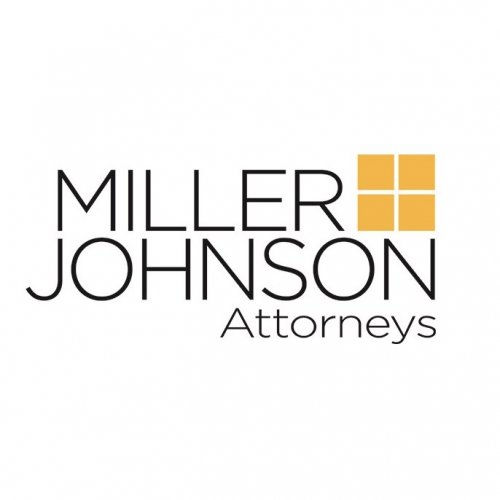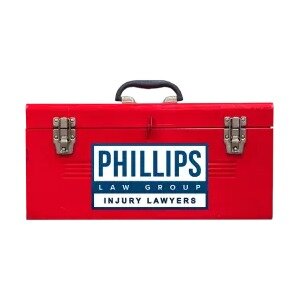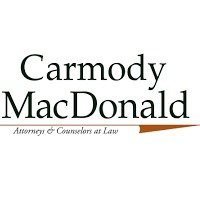Best Public-Private Partnerships (PPP) Lawyers in United States
Share your needs with us, get contacted by law firms.
Free. Takes 2 min.
Or refine your search by selecting a city:
List of the best lawyers in United States
About Public-Private Partnerships (PPP) Law in United States
Public-Private Partnerships, commonly known as PPPs, are collaborative agreements between government entities and private sector companies to finance, build, and operate projects or services that have traditionally been provided by the public sector. In the United States, PPPs are widely used for infrastructure projects such as roads, bridges, water systems, schools, and public buildings. The legal framework for PPPs is a combination of federal, state, and local laws and varies by jurisdiction and project type. These arrangements are designed to leverage private sector expertise and resources while meeting public needs more efficiently.
Why You May Need a Lawyer
Entering into a PPP involves complex legal, financial, and regulatory considerations. You might need a lawyer in situations such as:
- Negotiating the terms and structure of a PPP agreement
- Complying with federal, state, or local procurement and contracting laws
- Performing due diligence on potential partners, assets, or liabilities
- Addressing risk allocation, dispute resolution, or performance guarantees
- Ensuring compliance with environmental, labor, or zoning regulations
- Managing financing, public funding, or tax incentives
- Protecting intellectual property or proprietary technology used in the partnership
- Dealing with potential termination or renegotiation of existing PPP contracts
- Advising on transparency, accountability, and community impact requirements
- Navigating lawsuits or claims that may arise during the life of the partnership
Retaining qualified legal counsel can help identify and mitigate risks, clarify obligations, and ensure your interests are protected throughout the PPP process.
Local Laws Overview
PPP laws in the United States are not uniform across the country. Federal guidelines may apply when federally funded projects are involved, but most PPPs operate under state or local laws. Each state may have its own enabling legislation outlining permissible PPP projects, procurement procedures, and oversight mechanisms. Key aspects of local laws relevant to PPPs include:
- Enabling legislation: Some states have specific statutes that authorize government agencies to enter into PPPs.
- Procurement and bidding: Legal requirements govern how private partners are selected, including competitive bidding, evaluation criteria, and transparency standards.
- Risk allocation: Laws may specify which risks (financial, operational, legal) are allocated to each party in a PPP agreement.
- Public oversight: Oversight mechanisms may be set by law to ensure projects meet public sector objectives and maintain accountability.
- Project approvals: Major PPPs often require approval by state legislatures, municipal boards, or other governmental bodies.
- User fees and revenue: State and local laws may regulate how user fees (such as tolls) are set and collected, including profit-sharing arrangements.
- Environmental and labor compliance: PPP projects are required to comply with all relevant environmental and labor standards, which are enforced at different government levels.
Frequently Asked Questions
What is a Public-Private Partnership (PPP)?
A PPP is a contractual agreement between a government entity and a private company to deliver a public project or service, combining public oversight with private sector efficiency and investment.
What types of projects can use PPPs in the United States?
Common PPP projects include transportation infrastructure like highways and bridges, water and wastewater facilities, energy projects, schools, government buildings, and sometimes technology or healthcare systems.
How do PPP agreements typically work?
PPPs outline roles, responsibilities, risks, and rewards for each party over the life of the project, including financing, construction, operation, and maintenance. Agreements may last for decades and are tailored to each project.
Are there federal laws specifically governing PPPs?
There is no unified federal law for PPPs. However, specific sectors - such as transportation or energy - may have relevant federal regulations. Most PPPs are governed primarily by state and local laws.
How are private partners selected for PPP projects?
Private partners are usually selected through a competitive procurement process, which may include requests for proposals, qualifications, or sealed bids. Selection criteria often include technical expertise, financial capability, and value for money.
What legal risks should be considered in a PPP?
Risks include financial exposure, performance failure, regulatory compliance issues, changes in law or policy, and potential disputes between partners. A well-drafted agreement will address risk allocation in detail.
How are disputes resolved in PPP agreements?
PPPs typically include provisions for dispute resolution, such as negotiation, mediation, arbitration, or litigation. The selected method depends on the agreement and governing law.
What are “availability payments” and “user fees” in PPPs?
Availability payments are regular payments from the public sector to the private partner based on the project's performance standards. User fees are direct charges to end-users, such as tolls or ticket sales, to fund the project.
Can a PPP agreement be terminated early?
Yes, but early termination conditions, penalties, compensation, and procedures should be clearly defined in the agreement. Reasons may include default, force majeure, or public interest needs.
Do PPPs require public input or approval?
Many PPPs, especially large or impactful projects, require public consultation, approval by government boards, or even voter referenda, depending on local laws and the project's nature.
Additional Resources
If you need more information about PPPs in the United States, the following resources may be helpful:
- U.S. Department of Transportation Build America Bureau - guidance and funding programs for transportation PPP projects
- National Council for Public-Private Partnerships (NCPPP) - educational resources and case studies
- PPP units or offices within state Departments of Transportation or infrastructure agencies
- State or local government websites for specific PPP enabling legislation and guidelines
- American Bar Association’s Section of State and Local Government Law - PPP legal resources and publications
Next Steps
If you are considering a Public-Private Partnership or are involved in one, here are recommended steps:
- Conduct early research to understand the specific regulations and opportunities in your jurisdiction.
- Identify potential legal, financial, and operational risks for your project or area of interest.
- Consult with an attorney who has experience in PPP law and local regulatory frameworks.
- Prepare detailed documentation and questions before seeking legal advice to maximize the value of your consultation.
- Engage with relevant public agencies, stakeholders, and industry organizations to build partnerships and stay informed about legal developments.
- Follow legal advice and best practices to ensure compliance, transparency, and project success from procurement to completion.
Legal counsel is an essential partner in navigating the complexities of PPPs and achieving your goals with confidence and accountability.
Lawzana helps you find the best lawyers and law firms in United States through a curated and pre-screened list of qualified legal professionals. Our platform offers rankings and detailed profiles of attorneys and law firms, allowing you to compare based on practice areas, including Public-Private Partnerships (PPP), experience, and client feedback.
Each profile includes a description of the firm's areas of practice, client reviews, team members and partners, year of establishment, spoken languages, office locations, contact information, social media presence, and any published articles or resources. Most firms on our platform speak English and are experienced in both local and international legal matters.
Get a quote from top-rated law firms in United States — quickly, securely, and without unnecessary hassle.
Disclaimer:
The information provided on this page is for general informational purposes only and does not constitute legal advice. While we strive to ensure the accuracy and relevance of the content, legal information may change over time, and interpretations of the law can vary. You should always consult with a qualified legal professional for advice specific to your situation.
We disclaim all liability for actions taken or not taken based on the content of this page. If you believe any information is incorrect or outdated, please contact us, and we will review and update it where appropriate.
Browse public-private partnerships (ppp) law firms by state in United States
Refine your search by selecting a state.
















